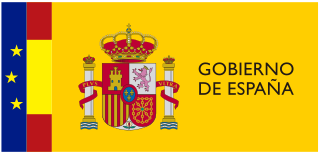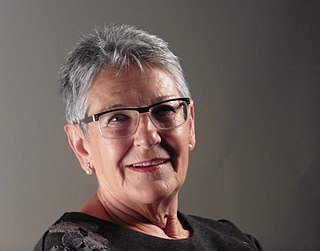Related Research Articles

The government of Spain is the central government which leads the executive branch and the General State Administration of the Kingdom of Spain.
Education in Spain is compulsory and free for all children aged between 6 and 16 years and is supported by the national government together with the governments of each of the country's 17 autonomous communities.

The Escuelas Oficiales de Idiomas (EOI) are a nation-wide network of publicly funded language schools in Spain that are found in most substantial towns. They are dedicated to the specialized teaching of modern languages, not just Spanish as a second or foreign language but any modern language for which there is a significant demand. The EOIs are centers that are both funded and managed by the regional education authorities of the various Autonomous communities of Spain, and they are framed within the non-university special regime, which facilitates subsidized or grant-assisted access and support to suitable candidates.

The 1833 territorial division of Spain divided the country into provinces, in turn classified into "historic regions". This division was followed by the ensuing creation of provincial deputations, the government institutions for most of the provinces, remaining up to this date. Nearly all of the provinces retain roughly or precisely the 1833 borders. Conversely, many of the historic regions correspond to present-day autonomous communities.

The Spanish National Health System is the agglomeration of public healthcare services that has existed in Spain since it was established through and structured by the Ley General de Sanidad of 1986. Management of these services has been progressively transferred to the distinct autonomous communities of Spain, while some continue to be operated by the National Institute of Health Management, part of the Ministry of Health and Social Policy. The activity of these services is harmonized by the Interterritorial Council of the Spanish National Health Service in order to give cohesion to the system and to guarantee the rights of citizens throughout Spain.
Spanish Federation of Sports for the Blind is the national governing body for blind sport in Spain. It is one of five disability organizations that are part of the Spanish Paralympic Committee. Prior to its creation in 1995, blind sport in Spain was governed by Spanish Sports Federation for the Physically Disabled and Organización Nacional de Ciegos Españoles (ONCE).

Spanish Sports Federation for Persons with Physical Disabilities is one of five disability sport organizations aligned with the Spanish Paralympic Committee that works towards support disability sport in Spain, and in this case specifically for people with physical disabilities.
Spanish Federation of Sportspeople with Intellectual Disabilities is one of five disability sport organizations that deals with sport on the national level. It focuses on intellectual disabilities, one of two in the country to do so nationally. It has a high performance focus.
Spanish Federation of Sports for the Deaf is the national governing body for deaf sports in Spain. Based in Madrid and created in 1993, they are one of five disability sport organizations that are members of the Spanish Paralympic Committee.
Spanish Federation of Sportspeople with the Cerebral Palsy is the national sports federation for people with cerebral palsy. It is composed of regional federations. It supports a number of sports.

The Spanish Anti-Doping Agency, officially Spanish Commission for the Fight Against Doping in Sports (CELAD), is a Spanish state agency responsible for the protection of the right to health of all athletes and the protection of the right to participate in a competition without cheats.
The Spanish education system is composed of five levels of education:

Nélida Zaitegi de Miguel is a Spanish teacher and pedagogue. Her work focuses on promoting the construction of positive coexistence in educational institutions, as well as the prevention and action in cases of bullying among peers.
The Honours is the maximum and extraordinary grade that can be obtained in a subject at the university.

The Universidad a Distancia de Madrid (UDIMA), is a private online university based in Community of Madrid, Spain. It offers undergraduate and postgraduate courses using online digital tools. It is located in the Madrid town of Collado Villalba.

Tuition fees in Spain correspond to the amount of money that a student must pay in order to pursue higher education studies in Spain. Although they are generally associated with the cost of matriculation, they may also include other payments, such as enrollment in assessment tests or the issuance of official academic and administrative documents. In the case of fees at public universities, these are called "academic public prices". In turn, private universities can adjust their own prices because they have a financing system that is independent from the government, resulting in substantially higher tuition fees.
The distinction of "Honours" at the Spanish Baccalaureate is an academic award granted annually to the students who have completed their Spanish Baccalaureate degree with the best academic record and with the highest grade point average in their Class. It is given to the student with the highest academic grade average standing among their graduating class.

The history of education in Spain is marked by political struggles and the progress of modern societies. It began in the late Middle Ages, very close to the clergy and the nobility, and during the Renaissance it passed into the domain of a thriving bourgeois class that led an incipient enlightenment in the so-called Age of Enlightenment. The Constitution of 1812 and the drive of the liberals originated the contemporary education.
References
- ↑ "BOE.es - BOE-A-2007-12301 Orden ECI/1845/2007, de 19 de junio, por la que se establecen los elementos de los documentos básicos de evaluación de la educación básica regulada por la Ley Orgánica 2/2006, de 3 de mayo, de Educación, así como los requisitos formales derivados del proceso de evaluación que son precisos para garantizar la movilidad del alumnado". www.boe.es.
- ↑ Constitución Española de 1978, Artículo 149, http://www.congreso.es/consti/constitucion/indice/titulos/articulos.jsp?ini=149&tipo=2
- ↑ Ley Orgánica 6/2001, de 21 de iciembre, de Universidades. http://www.boe.es/diario_boe/txt.php?id=BOE-A-2001-24515
- ↑ "BOE.es - Documento consolidado BOE-A-2003-17643". www.boe.es (in Spanish). Retrieved 2018-02-09.